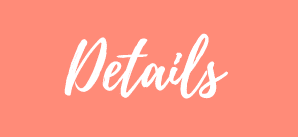What stops you from doing, having and being what you want? Let me just answer that for you straight away: discomfort. An intense unwillingness to be uncomfortable.
Let’s say you want to lose weight. What stops you from changing what you eat? Fear of being uncomfortable: you don’t want to feel hungry, you’re not sure how well you’ll like different foods that you might not be used to eating, you’re afraid of how you’ll feel if you stop eating chocolate or drink those two glasses of wine that you have been used to drinking.
Let’s dive in.
Discomfort
There are degrees of discomfort; it is not an absolute term. Subconsciously we’re all the time evaluating our return on investment in our actions. That is, we ask ourselves: “How much effort will this take me and what will I get in return?” Sometimes we do this consciously, but most of the time it’s just old programming running on auto-pilot.
What I’m going to suggest is that you start operating consciously so that your actions don’t just happen but that you actually choose them. So I’m going to walk you through a mind-game you can play with yourself so that you keep your eyes firmly fixed on the reward through a little long-term focus and then I’m going to suggest a few ways to make friends with discomfort.
Are you with me?
If so, think of something you want to achieve, a situation you want to be in, an object you want to possess, any desire will do, be it little or gigantic. What do you need to do to make it reality? If you haven’t already done it, chances are that you’re letting the fear of discomfort get in the way.
But to start off with, define your desired outcome and write it down
In my example of weight loss from above, this could be
1. Improving my heath so that I can walk up the stairs without getting out of breath
2. Fitting into the clothes that I adore and that my wardrobe is full of
3. Feeling even more sexy and gorgeous
4. Being able to do sports without feeling self-conscious
Then ask yourself:
“How much discomfort is it worth for me to endure to obtain the desired result?”
Let’s play a little mind-game here that we can call The Million Dollar Mind-Game: If you’re not convinced that fear of discomfort is holding you back, ask yourself what that result is worth. Would you take action if somebody gave you 1 million dollars for it? 2 Million? How much is it worth to you?
Knowing that weight loss happens when your calorie expenditure exceeds your calorie intake, ask yourself how much your weight loss is worth to you? Are you willing to feel hunger? How often? How long? Are you willing to let go of the need for a drink when you get back from work? Can you handle the consequences? Are you willing start exercising to increase your calorie expenditure? If so, how much exercise?
If your answers to those questions are NO or NONE, then there’s no point in starting a diet, is there?
It’s a question of dose, of degree.
What are you willing to endure? What discomfort are you willing experience? In weight loss, there are a lot of variables, a lot of elements that can be tuned up or down so if you’re unwilling to exercise, well then you must negotiate with yourself on how much less you’re willing to eat. (I know that not all calories are created equal but they do all count.)
If you’re unwilling to give up chocolate, know that you have to do something along the line of increasing the amount of exercise you do.
If you’ve played The Million Dollar Mind-Game and came up with the answer NO, then you know that’s it’s not your ability to lose weight that is stopping you; it’s your willingness to endure discomfort. Let me prove that to you. Ask yourself: “If somebody gave me 1 million dollars for losing 20 pounds, would I do it?” If the answer is YES, YES, YES, you no longer have to doubt your ability, you just have to find a reward that measures up to it.
The Reward
If you haven’t got a million dollars to gift yourself upon reaching your desired outcome, find something that you can gift yourself. The reward you bestow on yourself is KEY to your success. Why? Because if the reward is worth your while, it’ll keep you motivated and able to endure the discomfort. Would a trip to Paris be reward enough? Having your living-room done up? This is where you get to pamper yourself without the guilt because you overcame your discomfort! AND you arrived at your desired outcome. You did something monumental so now it’s time to celebrate. Go ahead, indulge!
As you go about achieving what you set out to, keep your focus on the reward. Before you eat an entire bar of chocolate, ask yourself how far into the future this will push your reward. And then ask yourself: “Is it worth it? Is it really worth eating this chocolate and have my trip to Paris happen much later if at all?”
If you haven’t come up with a worthwhile reward, this won’t work. If your reward is something like: “When I’ve lost 20 pounds, I’ll get my nails done”, well then it might not be worth the effort to resist temptation. On the thought of nails, having them done could be a worthwhile intermediate reward and it could go something like: “When I’ve exercised 4 times in a week for the first time, I’ll get my nails done”. This will of course only work if you’re not used to having them done every week 😉
So decide on a reward that is worthwhile; a reward that you’re willing to be uncomfortable for.
You can also decide, as I implied earlier, on how uncomfortable you’re willing to be. I would suggest that starting small is wise. If you start big, you might not succeed and being massively uncomfortable could also result in suffering. This is not how we want it. Having said that, know that the higher the discomfort, the higher the growth potential.
So how do you find the right dose of discomfort? Why, you practise!
No kidding! I’ve always been called a pleasure seeker, something I’m totally proud of. I’m not sure that people who call me that mean it as a compliment, but I take it as one. Why wouldn’t I seek pleasure? But I differentiate between long-term and short-term pleasure; sometimes we have to be willing to forego short-term pleasure for a long-term one, i.e. NOT eating the chocolate in the moment to get to the long-term pleasure of being healthy or fit (or going to Paris).
So how does a pleasure seeker put up with discomfort? She gets used to it, is what she does.
If you’ve ever done a sport or learned a language or how to play an instrument, you know that pleasure is not necessarily the immediate response to the exercise. In fact, it’s often quite the opposite. To illustrate this statement, just think how infuriating it can be to be unable to hit the tennis ball, time after time. Learning a language can be tortuous too when you have diligently been practising your verbs but are still incapable of understanding a word the natives say! Learning how to play an instrument can be frustrating especially when you’ve dutifully done all your piano exercises for a fortnight but are still not able to play the song you want! If this seems heartfelt, it’s because it is! I’ve been there. This has been my school of discomfort, but oh so rewarding!
If you don’t want to learn how to play a new sport, the piano or how to speak Chinese, practise on the little things.
Here are some of my favourite ways of flexing my discomfort muscles that don’t have any serious consequences:
Taking cold showers. Who in their right mind would do that? I for one. Because I didn’t use to enjoy cold showers; I used to enjoy them hot. But I thought that I could flex my discomfort muscle by slowly getting used to the cold water hitting the air out of my lungs. I started with 10 seconds at a time: first nice warm water, then 10 seconds of cold! Then back to warm followed by 10 seconds of cold. This enabled me to go longer and longer under the cold water.
How did I persuade myself to do it? Before a shower, I would say to myself: “You can just have a shower. You don’t have to have a cold shower. You don’t actually have to turn on the cold water. Let’s just see what happens.” This allowed me to get into the shower without apprehension. Once in the shower, it seemed silly not to go for the cold water; after all, no big deal. This just getting into the shower is what in terms of habit formation is called a cue. I won’t go into it here, but it’s a useful tool when you want to develop a good habit; start off by designing an innocent cue, an action that’ll get you on your way to engaging in your new habit but that doesn’t feel threatening.
Now I enjoy cold showers because of the energy they give me. I also think they’re making me more cold resistant which is always useful when you like winter sports! I’ve even heard that they raise your metabolism which is of course also a nice side effect.
A slightly harder flexing my discomfort muscle exercise is rock climbing. Now, if you adore rock climbing, you won’t be able to relate to this, but I don’t. Yet I engage in this activity. Why? Because doing something that intensely uncomfortable is an excellent opportunity for me to mind-over-matter it. I get to practise the emotional management that I teach my clients. Once you’re hanging off a cliff, you can’t say: “Sorry, I’m no longer doing it”. You have to keep on building your discomfort muscle and overcoming the fear is its own reward! I get to say: “I did it. I did it despite my fear.”
The last way of practising discomfort that I’m going to present to you is Saying NO. To many of us, this is SUCH an uncomfortable situation to be in that we just avoid it. We’d rather do something we don’t want to do for fear of disappointing somebody than say NO. Crazy when you think of it because this breeds resentment. Brené Brown advises us to “Choose a moment of discomfort over a life of resentment”, meaning that we should say NO when we mean NO, even if it’s ever so uncomfortable. Otherwise, we get to feel resentful which is of course a happiness-killer and no way to lead your life.
So practising saying NO when you might otherwise be tempted to say YES to avoid the discomfort, is an excellent way of practising flexing those discomfort muscles. And your life will improve as you become more and more proficient at it. Again start small. And please remember that you can say NO gently and gracefully. If you want to go deep in learning how to say NO, please check out my Online 12-Module Video Course called the Self-Love Activation Course where module 6 is entirely dedicated to learning to say NO: https://katrinehorn.com/self-love/
Good practising. Let me know what desired outcomes you’re designing for yourself and what delicious rewards you’re contemplating!
Looking for Private Coaching? You’re in the right place. I’d love to hear more about you. Please drop me a line via the contact form or feel free to join my waitlist here.
About the author:
Katrine Horn is a speaker and life coach who guides women to create the life of their dreams, to recognize their intrinsic value and release the illusion that life is a struggle. Katrine teaches women how to manage their emotions leaving them free to embrace opportunity when it comes their way. She helps them enter their Zone of Excellence where there are able to step aside to allow their highest good to find them.
Join the Choosing Happiness FB group: https://www.facebook.com/groups/ChoosingHappiness/


